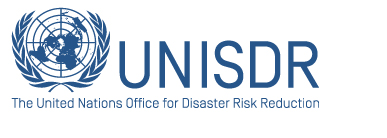This workshop will provide valuable input to set work priorities for disaster risk reduction, revise the national integratedrisk management report and provide recommendations to the V ordinary session on the national roundtable on disaster risk reduction.
This and other activities planned for the coming months are part of a 1,970,000 euroinvestment by the European Commission in Guatemala and 10 million more in Central America, through its Disaster Preparedness Program (DIPECHO), whose overall objective is to increase the resilience of nations and communities in the face of disasters.
Participants will strengthen knowledge of the status of risk management in the country, participate in the analysis of priorities and proposals to address the identified challenges, and will learn about successful tools and experiences developed by the partners of the DIPECHO Action Plan 2012-2013, in order to create strategic alliances and synergies among different organizations and institutions towards the construction of the National IntegratedRisk Management Report in Guatemala, which is expected to be published in November this year.
The workshop is organized by the National Coordinator for Disaster Reduction, (CONRED)led by the Engineer Alejandro Maldonado; the Regional Office for the Americas of the United Nations Office for Disaster Risk Reduction, UNISDR; the Coordination Centre for the Prevention of Natural Disasters in Central America, CEPREDENAC, and the organizations of the Netherlands Red Cross, COOPI, Action against Hunger (ACF) and CARE, under the auspices of the Office of Humanitarian Aid and Civil Protection Office of the European Commission, ECHO.
The DIPECHO Action Plan for Central America 2012-2013 focuses on reducing vulnerability, increasing the local response capacities and contributing to community preparedness to influence the institutions that are ableto face future extreme events to avoid disaster situations. It also includes activities such as protecting the livelihoods of disaster-prone communities,the creation of early warning systems, mapping threats and creating contingency plans, and coordination between institutions and stakeholders before, during and after an emergency, among others.
In Guatemala, the following projects are being implemented:
Netherlands Red Cross |
COOPI |
ACF |
CARE |
Increasing resilience to disasters in the department of Petén, Guatemala |
Disaster preparedness based on local knowledge in urban-rural areas on the Atlantic coast of Guatemala |
Reducing vulnerability of populations living in flood-prone areas of the Los Esclavos and Maria Linda basins through the improvement of local capacities and mechanisms for disaster preparedness, mitigation and coordinated response to emergencies |
Building communities that are resilient to disaster in the municipality of Chichicastenango, Quiché, Guatemala |
10 communities of the Las Cruces municipality, department of Petén. |
14 communities. Municipality of Livingston and Puerto Barrios. Department of Izabal. |
25 communities in the municipalities of Iztapa (Dept. Escuintla) Pasaco (Dept. Jutiapa), Taxisco and Chiquimulilla (Dept. Santa Rosa) |
13 communities and 2 micro-regions of the Chichicastenango, Department of Quiché. |
• Disaster Risk Reduction in Central America
With the growing impact of disasters in recent years in the countries of Central America, the priority is to continue to drive disaster risk reduction as a core element of political life of Central American countries, to ensure the irreversibility and sustainability of the processes underway and the achievements in matters of sustainable development in the countries of the region – that due to their geographic, social, environmental and economic characteristics, are highly exposed to the impact of natural hazards, which have been exacerbated by climate change.
Risk management efforts in the different environments of Central American countries is an enormous challenge that requires the coordinated action of all national and local actors in order to reduce human, economic and environmental losses. This context highlights the participation of UNISDR and CEPREDENAC, interacting with the Central American Governments,in order to achieve the targets adopted at the General Assembly of the United Nations General Assembly to implement the Hyogo Framework 2005-2015 and its five priorities for action.
• DIPECHO Programme
Floods, earthquakes, volcanic eruptions, tsunamis, hurricanes and droughts are destroying the lives of millions of people every year and produce incalculable economic losses. Recognizingthe link between disaster risk, climate change adaptation and sustainable development, the European Union and the governments of Central America have therefore placed a growing priority on the issue of disaster risk reduction (DRR).
Contributions by the Directorate-General of Humanitarian Aid and Civil Protection,ECHO,enable concrete actions at the community and municipal level, basing their actions on emergency response in crisis situations andthe preparation of authorities and communities in the face of disasters.
The disaster preparedness programme of the Directorate-General of Humanitarian Aid and Civil Protection of the European Commission, known as DIPECHO, seeks to limit the negative impact of disasters through the development and strengthening of response capacities of the authorities and affected populations.
Since 1992, ECHO has provided humanitarian aid to regions in need, demonstrating a concrete expression of the fundamental values of the European Union: solidarity with the most vulnerable populations, respect for human dignity, equality and tolerance.




